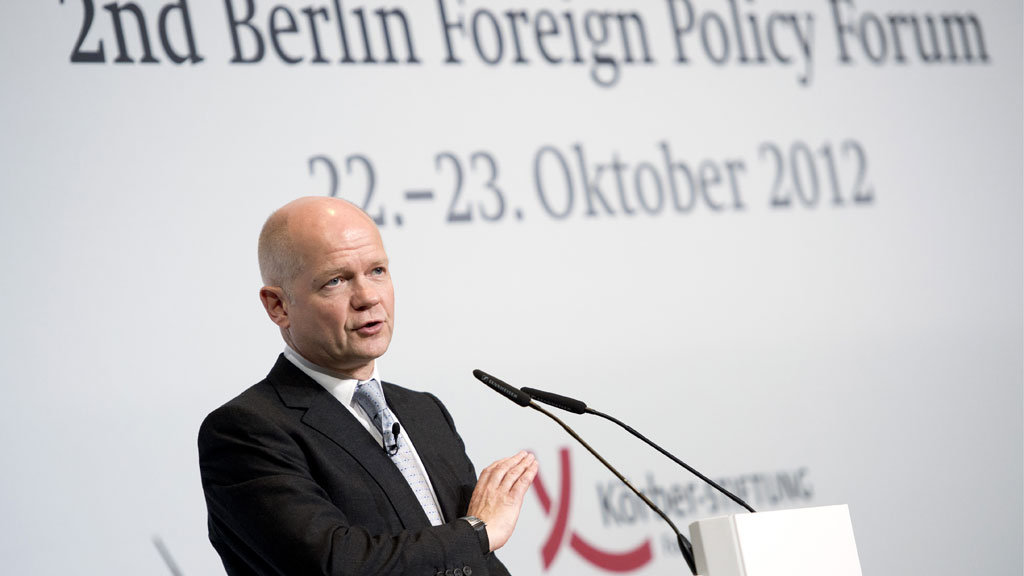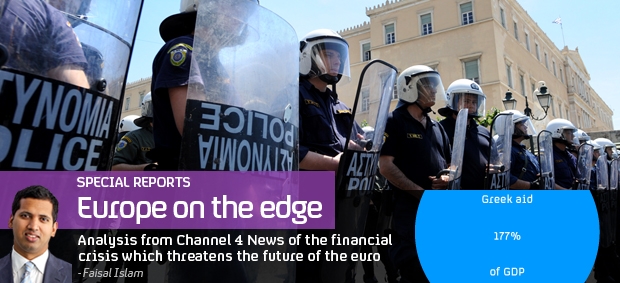British disillusion with EU ‘deepest ever’ – Hague
Foreign Secretary William Hague tells an audience in Berlin that British disillusionment with the European Union is the “deepest it has ever been”.

Speaking at a foreign policy forum, Mr Hague said British voters felt the EU was something that was “done to them”, with Brussels sucking up powers from national governments.
He said the EU must allow powers to “flow back” to member states, which should enjoy different levels of membership.
In a speech at Berlin’s Korber Foundation, Mr Hague said: “This coalition government is committed to Britain playing a leading role in the EU, but I must also be frank – public disillusionment with the EU in Britain is the deepest it has ever been.
“People feel that in too many ways the EU is something that is done to them, not something over which they have a say.
‘Great machine’
“The way in Britain Lisbon was ratified without any consultation of the voters has played a part in that. People feel that the EU is a one-way process, a great machine that sucks up decision making from national parliaments to the European level until everything is decided by the EU. That needs to change.”
Mr Hague said that unless it was shown that decision making could flow back to member states, “then the system will become democratically unsustainable”.
Referring to the eurozone debt crisis, the foreign secretary said some proposals for dealing with the problem would “severely curtail national democracy”, with the prospect of “decades of financial support from stronger economies to the weaker”.
Speaking later in the Commons, Mr Hague said the government’s review of the EU’s powers would report in four phases and produce more than 30 separate reports.
The first reports will include a review of the single market, taxation and foreign policy.
He told MPs: “The result will be a comprehensive, thorough and detailed analysis of where competence lies and what it means for the United Kingdom.
“It will aid our understanding of the nature of our EU membership and it will provide a constructive and serious contribution to the wider European debate about modernising, reforming and improving the EU. The review will not produce specific policy recommendations.”
